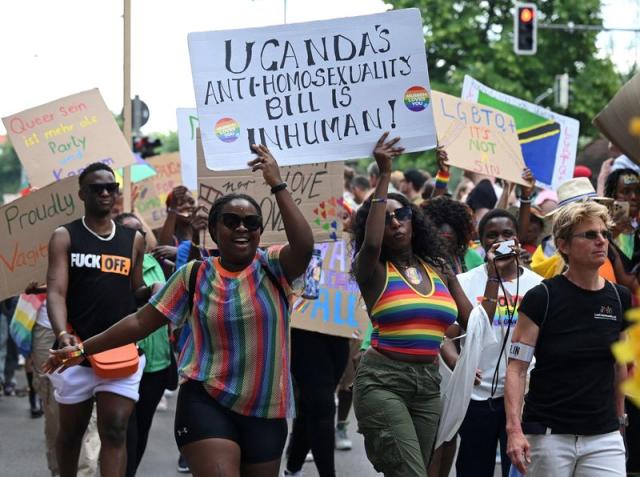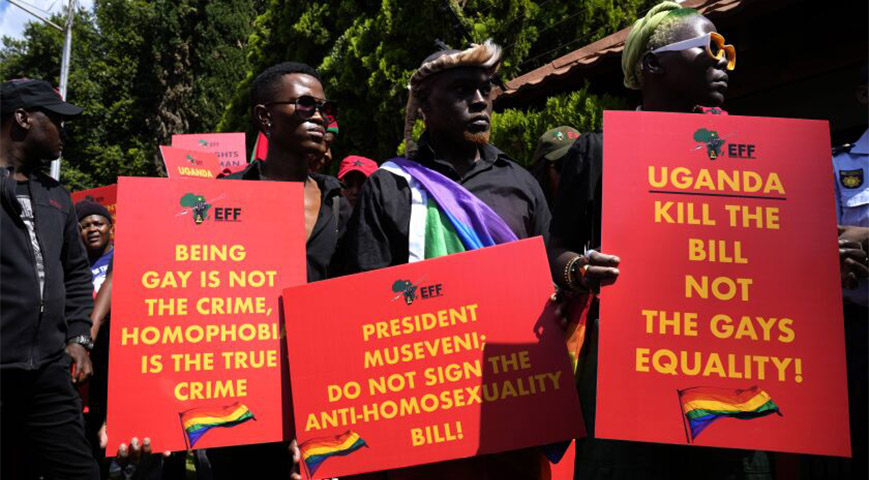Rights organizations reported on Thursday that the discussion and adoption by Uganda's government of one of the strictest anti-gay laws in the world has sparked a wave of abuse against LGBTQ persons, most of which is carried out by private individuals.
The death sentence is mandated for specific same-sex offenses under the Anti-Homosexuality Act (AHA), which was passed in May. Six people have been charged for violating it, including two who are being held on death row for "aggravated homosexuality."
However, according to the report, which was created by a committee of the Convening for Equality (CFE) coalition, private individuals were the primary offenders of human rights violations against LGBTQ people this year, including torture, rape, arrest, and eviction.
.jpeg)
This, according to the article, showed how the public had become radicalized against the LGBTQ community as a result of the law and the widespread homophobic discourse that preceded its passing earlier this year.
Did you read this?
The report said that, for instance, mob-assisted arrests had increased in frequency "because AHA has put LGBTIQ+ persons on the spot as persons of interest, and the public seems to be the custodians of enforcing the witch hunt."
Researchers found 306 cases of rights breaches between January 1 and August 31 that were based on the victim's sexual orientation and gender identity; 25 of those cases included state actors.
In contrast, rights advocates' reports from 2020 and 2021 revealed that approximately 70% of the documented rights violations during those years were caused by state actors. The statement omitted comparative data for 2022.

Chris Baryomunsi, the minister of information for Uganda, was unavailable for comment at the time.
The paper's authors claimed proof of 18 occasions in which the police subjected people in their custody to forced anal examinations to acquire "evidence" of homosexuality.
One survivor was quoted as saying, "Surviving a forced anal examination at police is something that lives with you forever."
Fred Enanga, a spokesman for the police, stated he had not yet read the report and was unable to comment.
The report issued a warning that given the challenges LGBTQ individuals face in reporting infractions, its data could not be regarded as thorough.
According to the report, the LGBTQ community is experiencing an increase in mental health disorders, including suicide ideation, as a result of the law's climate of fear and intimidation.









